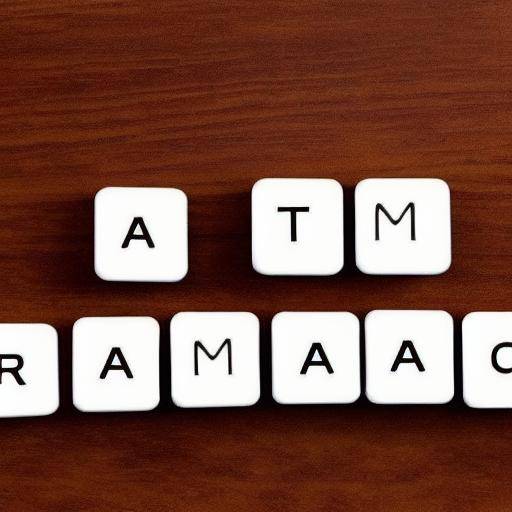
Anxiety is a mental disorder that affects millions of people around the world. It is characterized by excessive feelings of concern, fear and tension, and can significantly interfere with daily life. Fortunately, there are effective approaches to managing anxiety, and one of these approaches is the practice of gratitude. In this article, we will explore in depth the relationship between gratitude and anxiety, as well as its impact on mental well-being and stress management.
The connection between gratitude and anxiety
What is gratitude?
Before we dive into the relationship between gratitude and anxiety, it is important to understand what gratitude really means. Gratitude implies recognizing and appreciating the positive aspects of life, even in the midst of challenges and difficulties. It is a conscious approach that allows us to focus on what we value and gives us a sense of emotional well-being.
Impact of gratitude on anxiety
Many studies have shown that practicing gratitude on a regular basis can have a significant impact on reducing anxiety. By focusing on the positive aspects of life, people can counteract negative and catastrophic thoughts that often fuel anxiety. Gratitude promotes an optimistic mentality and fosters emotional resilience, which can be fundamental to facing anxiety.
Strategies to integrate gratitude in the management of anxiety
Including gratitude practices in daily routine can be beneficial to people who fight anxiety. From carrying a daily of thanks to verbally expressing gratitude to others, there are various strategies that can help foster a sense of appreciation and a positive perspective. These strategies can complement other forms of anxiety treatment, such as cognitive-behavioral therapy and meditation.
Mental well-being and stress management
The importance of mental well-being in general health
Mental well-being is a crucial aspect of a person's overall health. It encompasses not only the absence of mental disorders, but also the ability to manage stress, maintain healthy relationships, make informed decisions and find a balance between the different areas of life. Gratitude, like other self-care practices, plays a key role in promoting mental well-being.
The role of gratitude in stress management
Chronic stress can have devastating effects on mental and physical health. The ability to handle stress effectively is crucial to prevent long-term health problems. Gratitude acts as a shock absorber against the negative impact of stress, as it promotes positive emotions and strengthens emotional resilience. By integrating gratitude into stress management strategies, people can experience a significant reduction in perceived stress levels.
Additional benefits of gratitude
In addition to its impact on anxiety, mental well-being and stress management, gratitude carries a number of additional benefits that deserve to be highlighted.
Improved interpersonal relationships
The practice of gratitude not only has a positive impact on the individual, but can also strengthen interpersonal relationships. Expressing gratitude to others can foster emotional connection, promote empathy and strengthen social ties. Healthy relationships are a fundamental component of mental well-being.
Promoting self-esteem and confidence
Gratitude can contribute to a more positive perception of oneself. By focusing on what is valued and appreciated, people can strengthen their self-esteem and confidence in their own capacities. This sense of personal worth can be a protective factor against anxiety and depression.
Reduction of emotional toxicity
The act of practicing gratitude can counteract emotional toxicity by promoting forgiveness, compassion and understanding. Learning to focus on the positive can help diminish the feelings of envy, resentment and bitterness that often fuel negativity.
Practical tips for integrating gratitude into everyday life
For those who want to incorporate gratitude into their daily routine as a tool for managing anxiety and stress, there are several practical strategies that can be useful.
Take a diary of gratitude
Reserving a few minutes each day to score three things you feel grateful for can have a significant impact on mood and overall perspective. Keeping a diary of gratitude can be a tangible way of remembering everyday blessings.
Express gratitude to others
Whether through words or actions, expressing gratitude to others can strengthen interpersonal relationships and foster emotional connection. Show appreciation to those around us can generate a positive effect both on the issuer and the receiver.
Practice full attention and meditation
Full attention and meditation can be powerful tools to cultivate gratitude. By focusing on the present moment and paying attention to positive experiences, people can develop a greater awareness of the things they feel grateful for.
Focus on what you have, not what you need
Growing an abundance mentality, instead of scarcity, can help change the perspective of life. In appreciating what takes place instead of focusing on what is missing, it is possible to experience a transformation in the way circumstances are perceived.
Conclusion
The practice of gratitude can play a significant role in managing anxiety, promoting mental well-being and reducing stress. By incorporating strategies of gratitude into everyday life, people can experience tangible benefits in their emotional health and interpersonal relationships. As we continue to explore the connections between gratitude and mental health, it is crucial to recognize the positive impact that this practice can have on people's lives.
Frequently asked questions
Can gratitude really help reduce anxiety?
Yes, many studies have shown that regular practice of gratitude can have a significant impact on reducing anxiety by promoting positive emotions and strengthening emotional resilience.
What is the relationship between gratitude and mental well-being?
Gratitude is closely related to mental well-being, as it fosters an optimistic mentality, strengthens self-esteem and promotes positive emotions, all of which are essential to mental well-being.
How can I incorporate gratitude into my daily routine?
You can incorporate gratitude into your daily life through the practice of carrying a daily of gratitude, verbally expressing your appreciation to others, practicing full attention and focusing on the positive, among other strategies.
Does gratitude affect only the person who practices it or can also benefit those around it?
Gratitude not only benefits the person who practices it, but can also strengthen interpersonal relationships by fostering emotional connection and promoting empathy.
Is there any scientific evidence to support the benefits of gratitude?
Yes, many scientific studies support the benefits of gratitude in mental health, showing its positive impact on reducing anxiety, managing stress and promoting emotional well-being.
Can gratitude be useful for children and adolescents who experience anxiety?
Yes, the practice of gratitude can be beneficial to children and adolescents by promoting positive emotions, strengthening emotional resilience and improving their mental well-being.
Conclusion
Gratitude practice is a powerful tool that can have a significant impact on anxiety management, the promotion of mental well-being and the reduction of stress. By cultivating a culture of appreciation and recognition, people can experience tangible benefits in their emotional health and interpersonal relationships. We encourage our readers to explore the various strategies of gratitude and incorporate them into their daily lives to reap their broad benefits.
In short, gratitude is not only an act of goodness towards others, but also a powerful gift that we can give ourselves. Through conscious practice of gratitude, we can open our minds and hearts to abundance, strengthen our emotional well-being and overcome the challenges of anxiety and stress.






















































